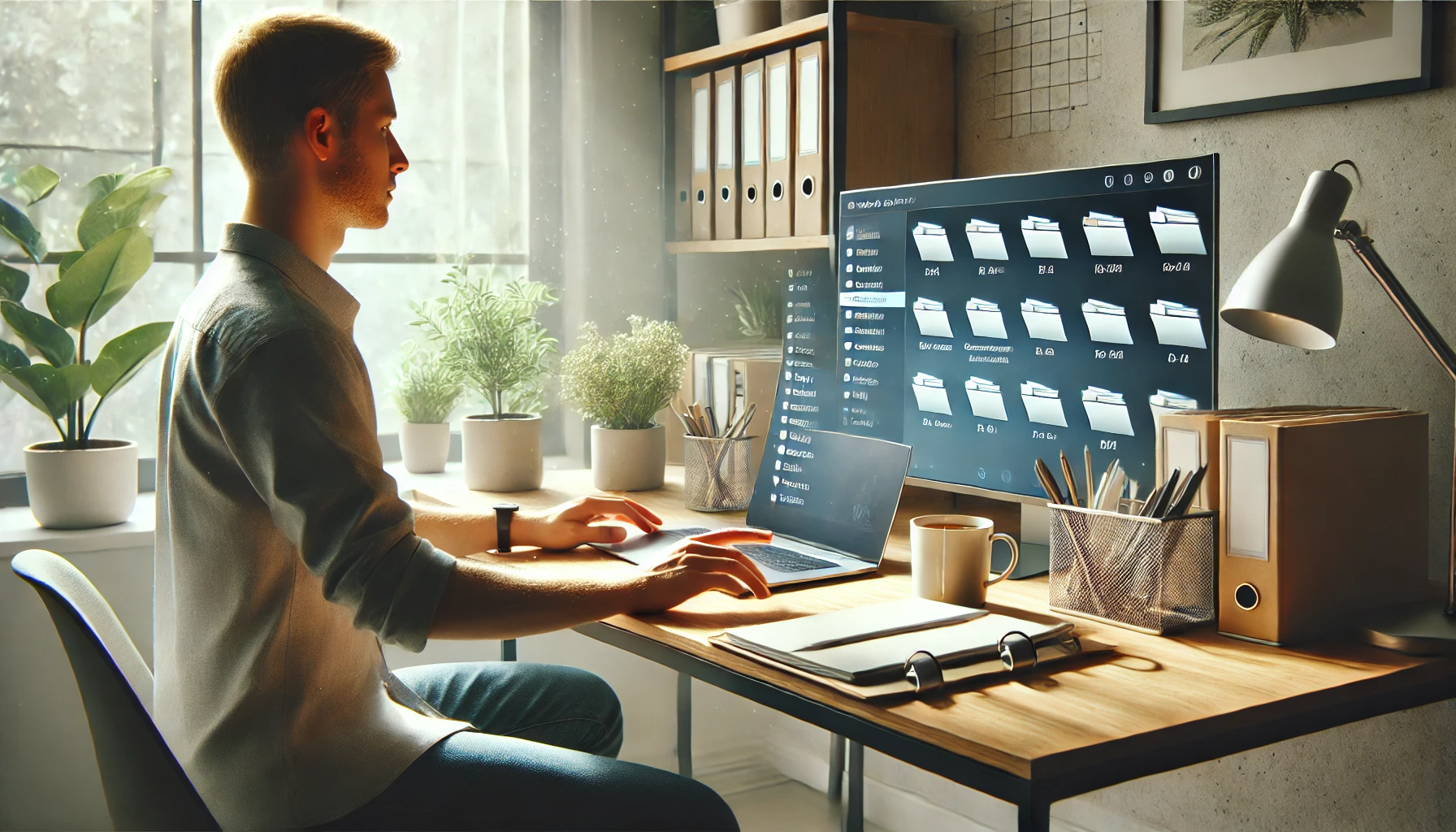We spend hours each day in digital spaces — emails, apps, messages, screens. And while the internet can be powerful, inspiring, and productive, it can also be overwhelming, noisy, and draining.
Just like your physical environment affects your peace of mind, so does your digital one.
That’s why creating a digital space that supports your mental well-being is more than just organizing files — it’s about protecting your focus, energy, and mental clarity in the online world.
Let’s explore how to design a calmer, more intentional digital life — one click at a time.
Why Your Digital Environment Matters
When your digital space is cluttered or chaotic, you’re more likely to feel:
- Distracted
- Drained
- Anxious
- Disconnected
- Mentally overloaded
But when you take control of your tech, instead of letting it control you, you create space for:
- Clearer thinking
- More focus and flow
- Better boundaries
- Less screen fatigue
- Greater peace
Let’s build that kind of space.
1. Audit Your Digital Life
Before you organize or declutter anything, take inventory.
Ask yourself:
- “Which apps or platforms make me feel calm, creative, or connected?”
- “Which ones drain, stress, or distract me?”
- “Where am I spending most of my digital time — and how do I feel afterward?”
This awareness will help you make intentional changes instead of default ones.
2. Clean Up Your Home Screen (and Desktop)
Start with what you see every day.
Tips:
- Remove any apps you don’t use
- Keep only essential tools or calming visuals on your home screen
- Organize apps into folders: work, wellness, fun, etc.
- Use a minimalist or inspiring wallpaper
- Clear up your computer desktop — aim for zero clutter
Less visual chaos = more mental clarity.
3. Turn Off Non-Essential Notifications
You don’t need to know everything right now.
Try this:
- Turn off notifications for social media, news apps, and emails (except for urgent contacts)
- Use “Do Not Disturb” mode during focus or rest time
- Customize alerts so you choose when to engage
Silence creates space for your brain to breathe.
4. Curate Your Social Media Feeds
Your digital diet affects your mental health just like your food does.
Clean up your feed by asking:
- “Does this account make me feel inspired or anxious?”
- “Am I comparing myself or genuinely connecting?”
- “Would I follow this if I weren’t already?”
Unfollow, mute, or hide content that doesn’t align with how you want to feel.
5. Organize Your Digital Files + Inbox
Decluttering your files is like tidying up your mental workspace.
Try this:
- Create labeled folders for documents, photos, and downloads
- Archive or delete old emails you don’t need
- Use filters to manage incoming messages
- Empty your trash and downloads weekly
- Keep your digital tools (like Notion, Google Drive, etc.) organized and clean
It’s amazing how much lighter you feel when your digital space is tidy.
6. Schedule Regular Digital Detox Moments
You don’t have to disappear — just disconnect on purpose.
Ideas:
- No screens for the first and last hour of your day
- Screen-free mealtimes or walks
- A full day offline each week (or even just a few hours)
- Leave your phone in another room while working or resting
This isn’t punishment — it’s protection for your peace.
7. Use Tech Tools That Support, Not Distract
Technology isn’t the enemy — but how you use it matters.
Helpful tools:
- Focus apps (like Forest or Freedom)
- Calming backgrounds or browser extensions (like Momentum)
- Apps for journaling, gratitude, or mindfulness
- Time trackers to bring awareness to screen habits
Let your tools serve you — not the other way around.
8. Create a “Digital Wind Down” Routine
How you end your digital day affects your sleep, your stress, and your next morning.
Try this routine:
- Close tabs and programs you don’t need
- Review your calendar or tasks for the next day
- Turn off unnecessary notifications
- Replace screen time with a relaxing habit (reading, journaling, stretching)
Signal to your brain: it’s time to log out — literally and mentally.
Your Mind Deserves a Peaceful Place — Online, Too
You can’t always control what happens on the internet. But you can control how you engage with it.
When you intentionally shape your digital space to reflect what you value — calm, focus, joy, connection — you change not just how you use technology, but how it uses you.
So take a breath, clear the clutter, and start small.
Your mind will thank you.

